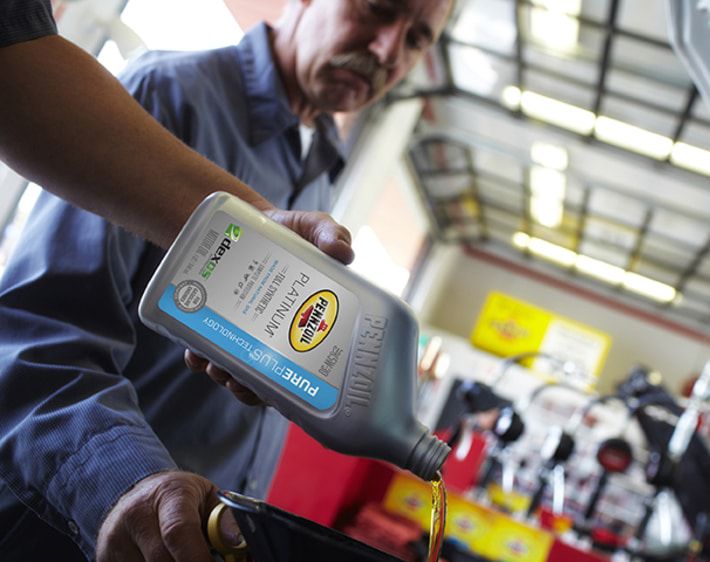“Would you like synthetic or conventional oil?”
When faced with this question, it might seem easier to choose the cheapest route. Compared to conventional oil, synthetic oil can have a slightly higher price tag. If synthetic motor oil makes a difference in engine performance, though, is it worth spending a little extra? The short answer is, yes. Changing to synthetic oil might be a good idea. Read on to learn why.
Should I switch to synthetic oil?
If your engine is equipped to handle it, switching to synthetic oil can be a smart move. Synthetic oil performs at a wide temperature range and is ideal for engines with direct injection, variable valve timing, turbochargers, or superchargers that operate hotter.
Unfortunately, there are many motor oil myths about switching from regular to synthetic oil that confuse drivers. To demystify synthetic oil, let’s look at the top benefits of switching to synthetic and some common myths.
Synthetic Motor Oil Benefits
- Synthetic oils can withstand colder temperatures than conventional, so you enjoy worry-free startups in freezing weather. (That's one reason changing from regular to synthetic oil in winter can be a good idea!)
- Synthetic oils can also withstand hotter temperatures, which reduces burn-off in the summer.
- Synthetic oils, such can help clean your engine, prevent sludge buildup, and improve fuel economy.
- Synthetic oils have fewer impurities than conventional oils, thereby increasing the overall longevity and performance of your engine. Less sludge means smoother operation from the get-go.
Synthetic Motor Oil Myths
- Switching to synthetic oil causes leaks: Generally, switching to synthetic oil does not cause leaks. It is true that synthetic oil is thinner than conventional oil and therefore flows more easily. If there is a spot where oil could leak out in your engine, then synthetic oil is more likely to leak than conventional. However, synthetic oil would not cause the leak.
- You can't switch back to conventional oil: Once you switch to synthetic, you are not bound to it forever. You can switch back to conventional oil if you choose to do so and your vehicle manufacturer doesn't recommend otherwise. However, continuing to use synthetic oil may help prolong the life of your vehicle by taking better care of your engine.
- You have to break in a new car with conventional oil: Some people might think you have to break in a newer car by using conventional oil for a time before switching to synthetic. In reality, there are no recommendations for this procedure from any vehicle manufacturer. In fact, many new vehicles are now shipped out of the factory with synthetic oil.
How to switch from conventional to synthetic oil
Knowing what makes synthetic oil better than conventional is only the first step. The next step is to make the switch! Talk with your technician and consult your owner's manual. Synthetic oils are not all the same and not all engines are equipped to handle them. In the end, the best motor oil for your vehicle is the one your manufacturer recommends.
At Firestone Complete Auto Care, we trust Pennzoil® Synthetics to keep your engine in top condition. Not only does Pennzoil help your engine run more efficiently, it actively cleans it while you drive. So, if you want a cleaner engine and better peace of mind, stop by your nearest Firestone Complete Auto Care to get a Pennzoil synthetic oil change.



